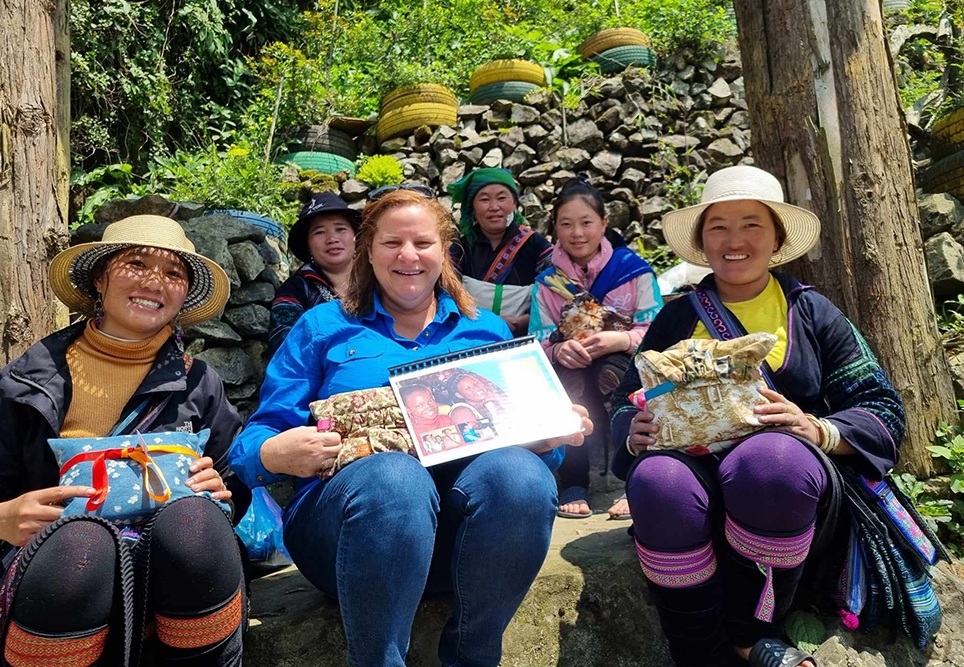
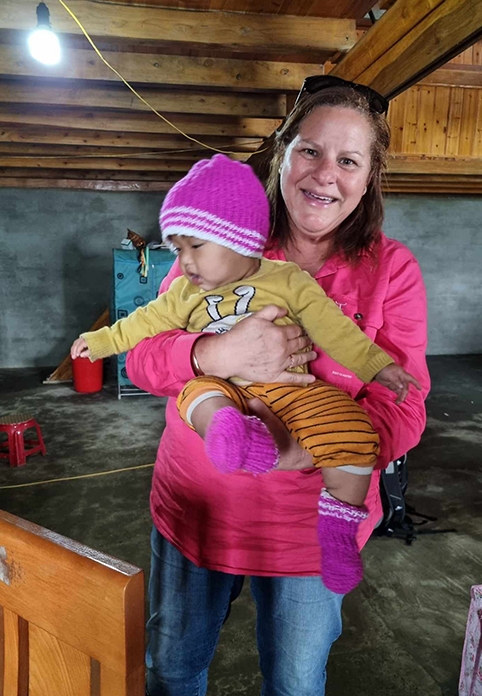
Earlier this year, Lorraine spent three weeks trekking in Lào Cai province in north-west Vietnam alongside her friend Judith.
At every break in the forest, they would be rewarded with views of terraced rice fields and towering peaks, but this was not a sightseeing holiday. They trekked rain or shine, in gumboots through the mud, carrying Days for Girls reusable hygiene packs as well as birth packs.
These packs contained items such as washable, reusable sanitary pads, scalpel blades, nappies, gloves, soap, wash cloths, and other items that are invaluable in one of Vietnam’s poorest areas.
The pair carried them to empower local ethnic hill tribe women and girls (in this instance, mostly H’Mông women and girls) including those who birth at home in unhygienic conditions and have limited access to menstrual hygiene products.
“We’d meet up with a local H’Mông interpreter and learning educator, Nhu, who knew the area and she’d let people know we were coming and trek with us to the villages,” Lorraine says.
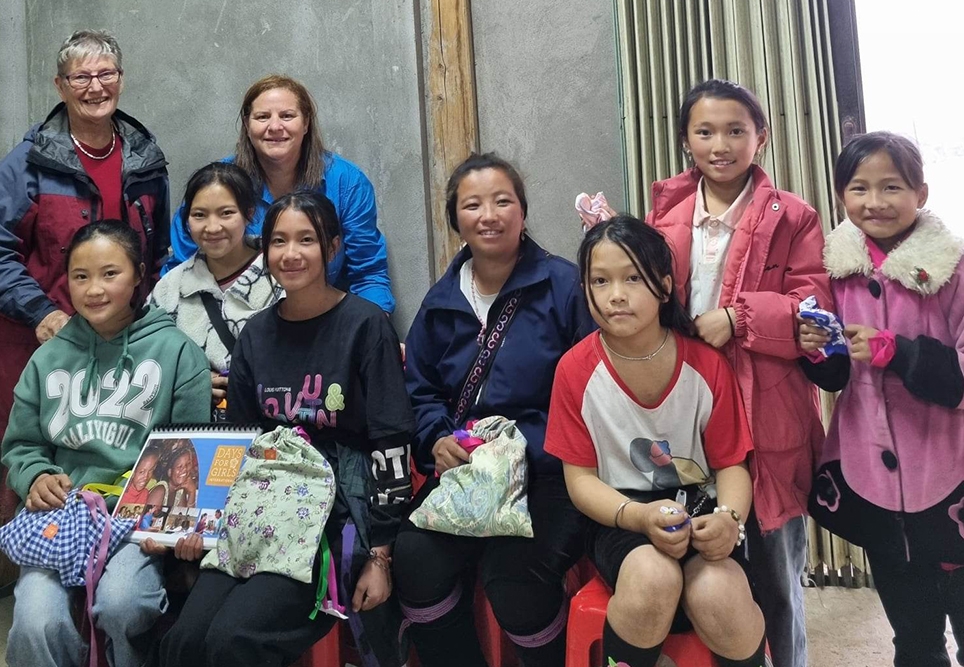
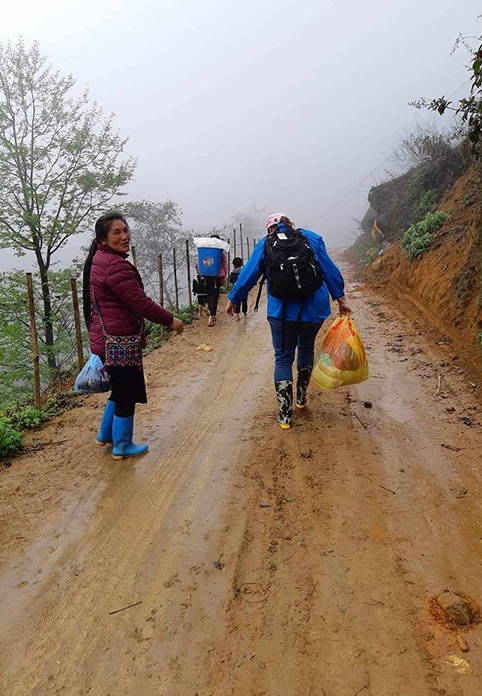
“We would make our way, usually to a meeting place like the church, and all the mums and girls would come.
“Then we would give out the hygiene packs and birth packs, and deliver an education session – teaching the local women and girls about contraception, menstrual periods, hygiene, and to be safe from men.
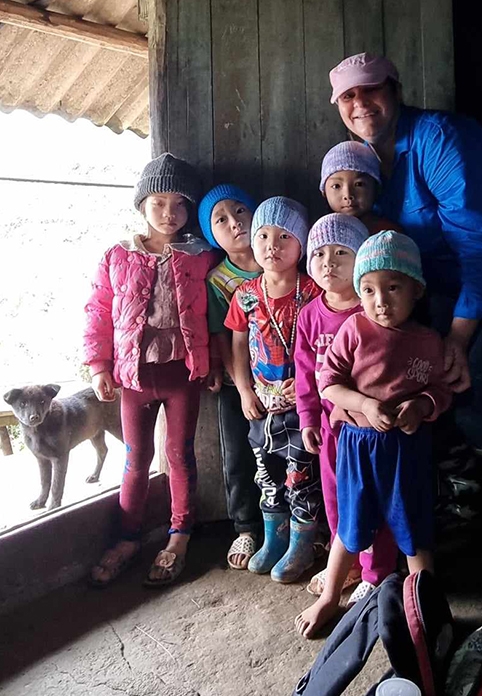
“Nhu would translate. One of Judith’s goals was to upskill her to teach the local women and girls, so that when we are not there, she can still go out to the villages to teach as well.”
The trio also delivered opportunistic education on the go.
“As we went along, we would meet families with babies and kids, stop and give them beanies and other items of clothing, and talk with them,” Lorraine says.
“The hill tribe women, they often walk miles and miles to sell their trinkets in the streets,
to make money for food. We would meet with these women too, taking the opportunity to talk about safe birthing and hygiene.”
Asked what she gained from the experience, Lorraine says perspective.
“The local communities often live with no running water, no flushing toilets.
“Young girls can’t go to school when they have their periods, because they have no money to buy pads. Thanks to these packs, they can go to school; more kids can be educated.
“There is a hospital in Sa Pa, but how do these women get there? They don’t have the means and that is often why they don’t head to hospital when in labour; they labour at home. In one house, we asked ‘how did you cut the cord?’ and the mother brought the scissors out of the kitchen.
“These resources are not to encourage women and girls to birth at home; but if they are going to, this way, it’s hygienic and safe.”
